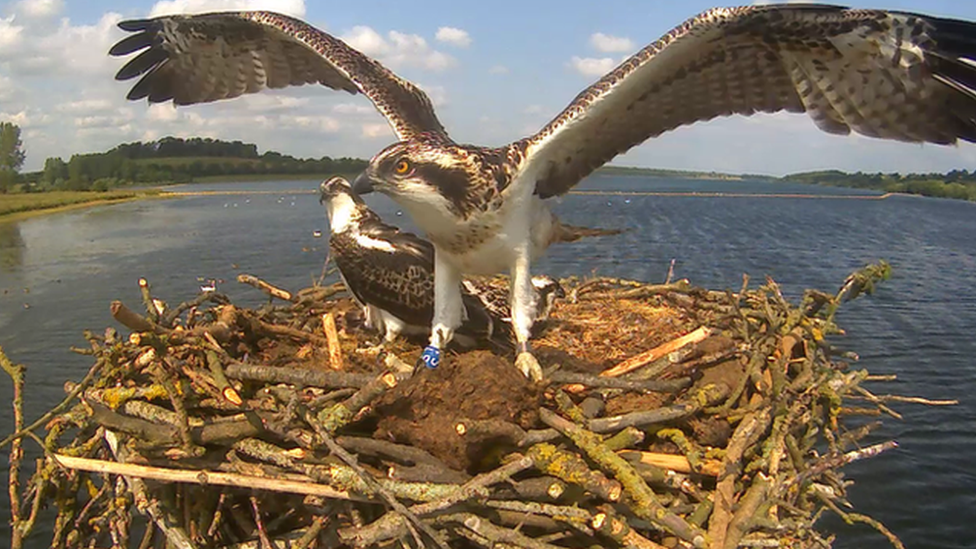Rutland Osprey Project sees 250th chick fledge
- Published
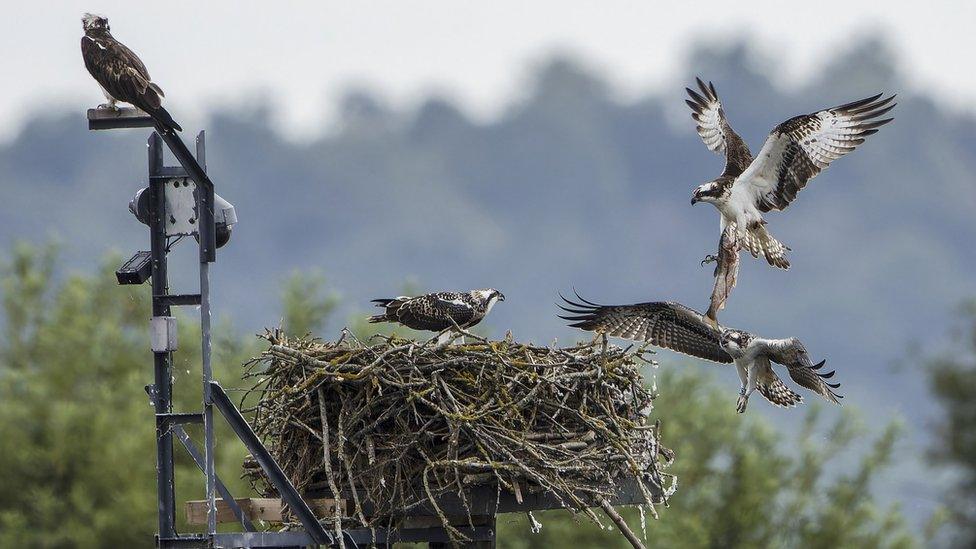
Since the birds were introduced, hundreds have been raised in Rutland - with some returning to breed there time after time
England's first successful osprey breeding project has revealed its 250th fledged chick this year.
Rutland Water Nature Reserve was the first place in England where ospreys bred in 150 years, and has helped to restore the numbers of the birds.
Scottish chicks were introduced as part of the Rutland Osprey Project in 1996 and in 2001 a first pair bred.
Leicestershire and Rutland Wildlife Trust said the 250th fledged chick, external was a "historic milestone achievement".
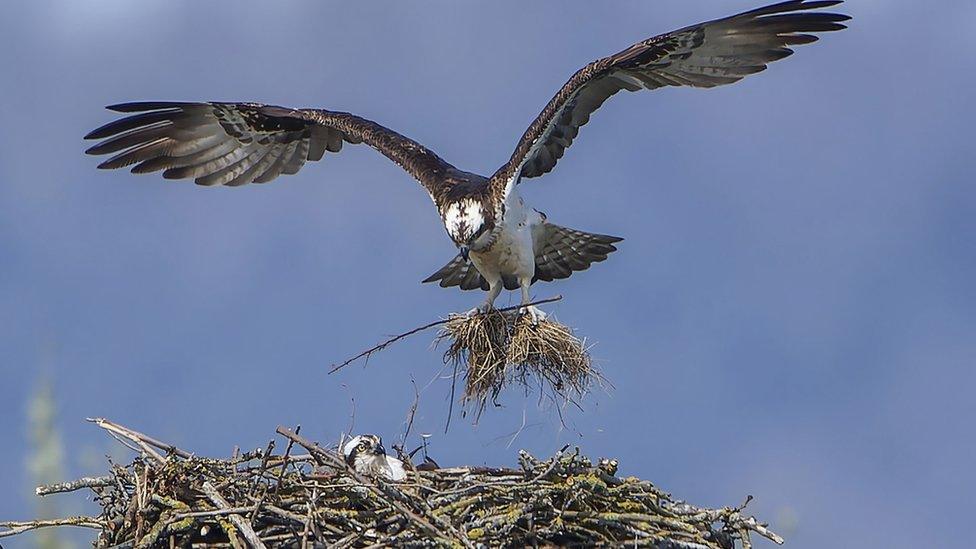
Ospreys were once a common sight in Britain, but in 1847, a gamekeeper shot one of the last breeding pairs in England
The trust - which has shared the news this week - said the osprey chick left for Africa in September.
Since the birds were introduced, hundreds have been raised in Rutland - with some returning to breed there time after time.
The 100th chick at the site fledged back in 2015 and the 200th fledged in 2021.
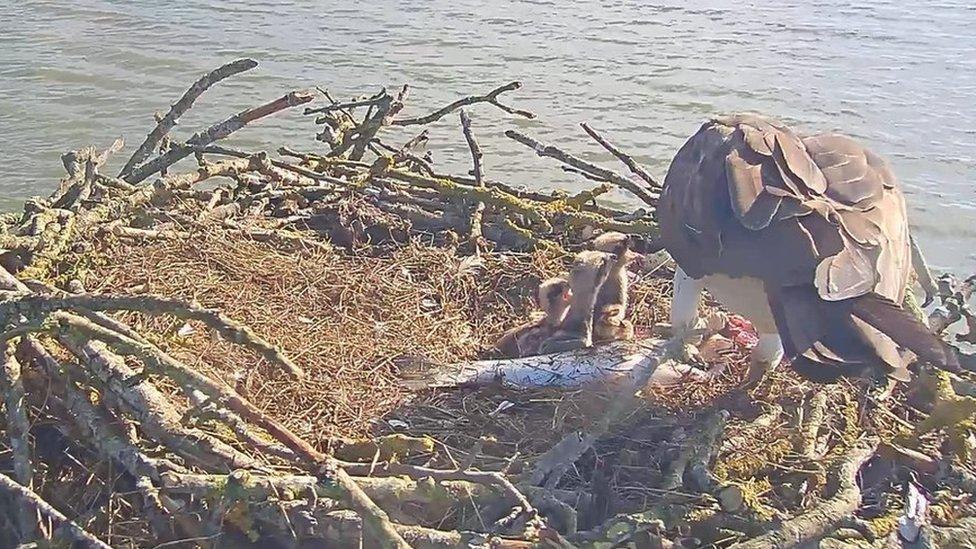
The project has cameras watching some of the osprey nests
Leicestershire and Rutland Wildlife Trust said: "This is truly one of the most inspiring conservation success stories in England.
"This proves that with commitment, hard work and help with funding through partnership programs and the local community, conservation projects like this can be successful and can help repair the natural balance within wildlife populations, giving hope to the UK's state of nature," it said.
The trust said ospreys were once a common sight in Britain, but in 1847, a gamekeeper in Somerset shot one of the last breeding pairs in England, practically making ospreys regionally extinct.

Follow BBC East Midlands on Facebook, external, Twitter, external, or Instagram, external. Send your story ideas to eastmidsnews@bbc.co.uk.
Related topics
- Published5 August 2021
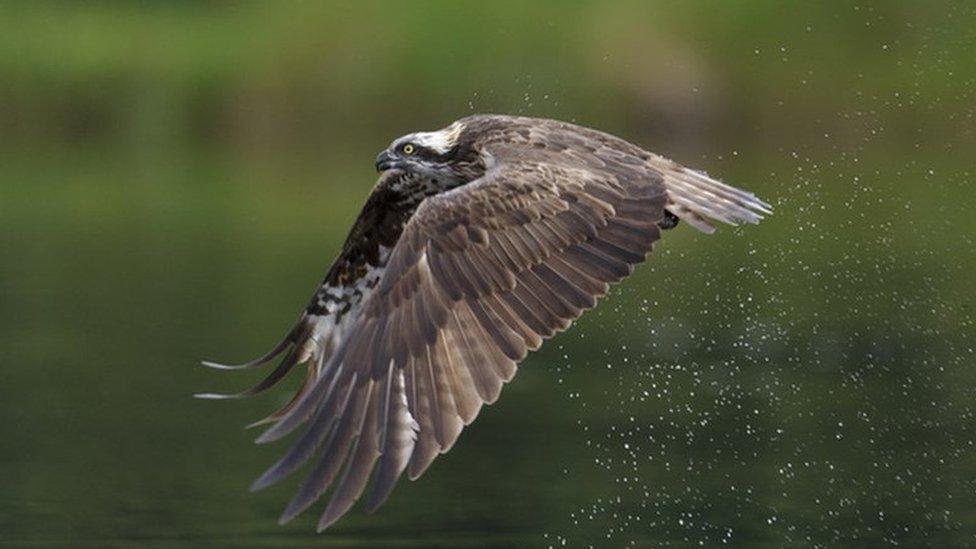
- Published30 May 2020
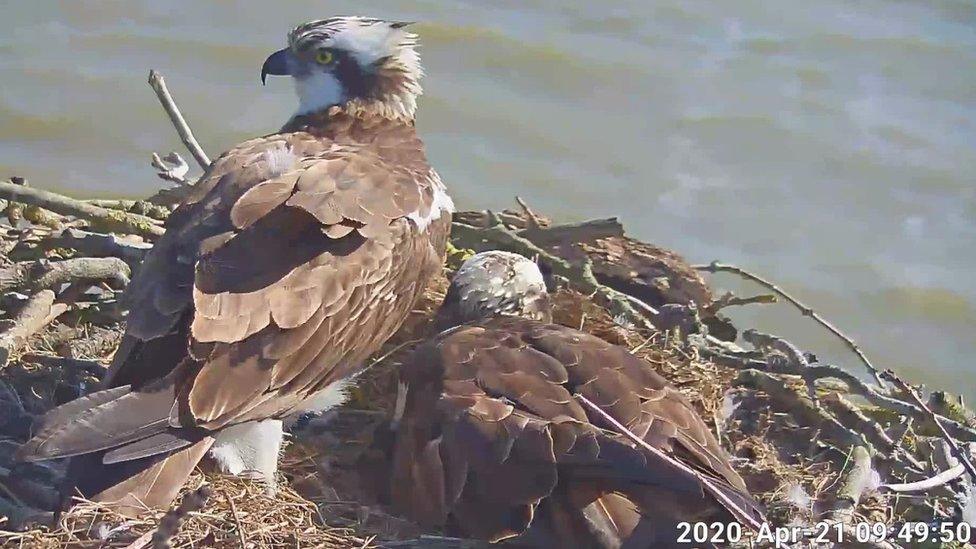
- Published27 July 2019
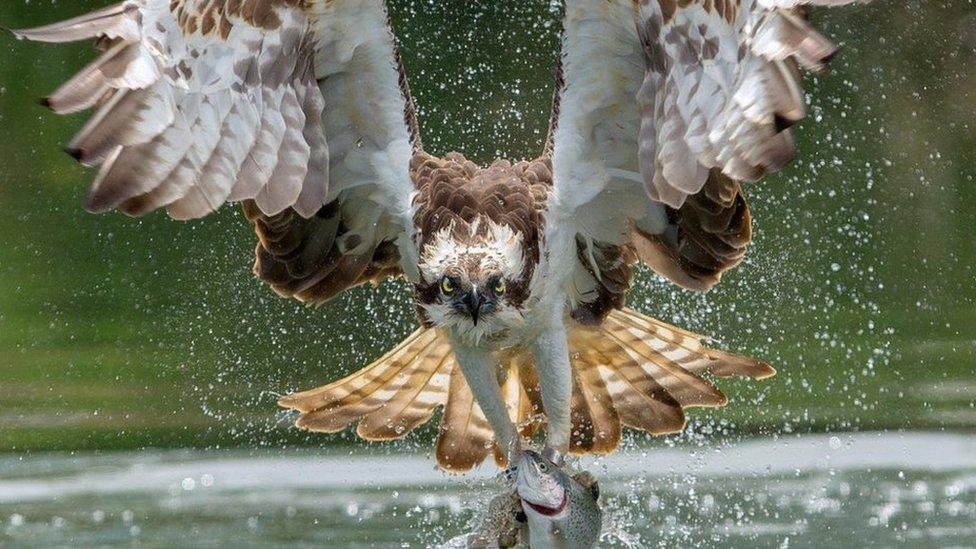
- Published6 July 2016
